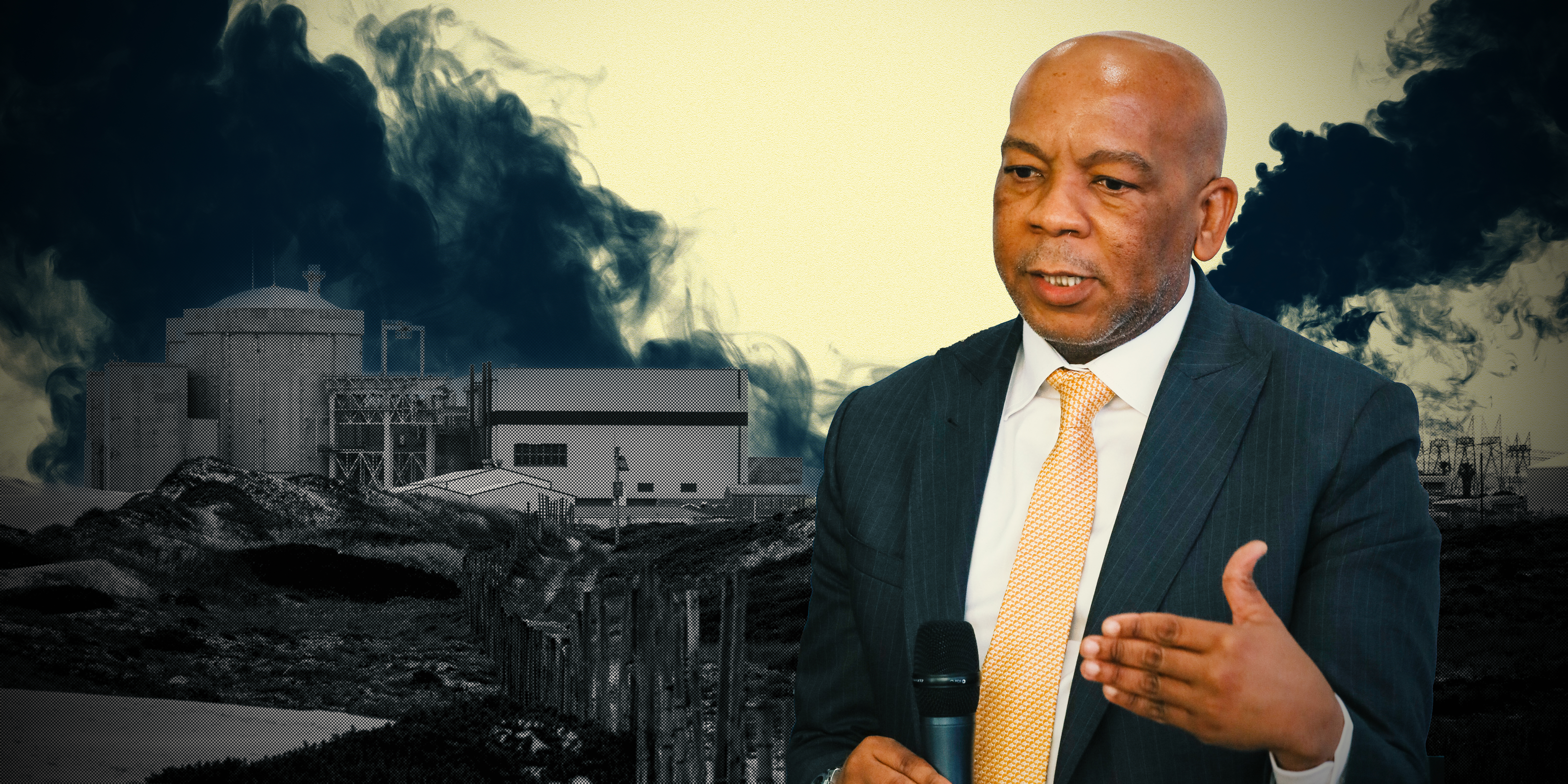The Department of Mineral Resources and Energy is pressing ahead with a plan to procure 2,500MW worth of nuclear energy, with the early work of doing so expected to start in March 2024.
The department, which has the legal power to procure additional electricity from coal, nuclear and renewable energy sources, plans to publish a request for proposal by March next year — officially kick-starting the process to procure new nuclear energy.
A request for proposal is a document that the government publishes to solicit formal bids from vendors/suppliers on projects it wants to undertake, with the document setting out project specifications, costs, and timelines for delivery.
In the government’s case for new nuclear procurement, the request for proposal would outline the country’s need for nuclear energy, but the exact details to be included in the proposal are not yet known.
In a briefing with journalists on Tuesday, 12 December, the deputy director-general for nuclear energy in the department, Zizamele Mbambo, said it was “not in a position to talk” about the requirements to be included in the request for proposal because the department had not begun designing the proposal.
“At this stage, we cannot pronounce on the shape or form of the request for proposal and what it will look like and what it will call for,” said Mbambo.
The government has yet to decide if it will build large-scale nuclear reactors similar to those at conventional nuclear power stations, or if small modular reactors would be more feasible.
Mbambo said that based on the department’s assessments and general discussions with nuclear vendors since 2020, the construction process of a nuclear build typically took between 10 and 12 years. The department expects to commission the first unit of the 2,500MW nuclear project by 2032 or 2033, at which point nuclear energy will be connected to the national grid.
SA’s approach and policy on nuclear
South Africa already has exposure to nuclear energy through Eskom’s 1,800MW Koeberg Power Station in Cape Town. The government wants to extend the life of Koeberg by 20 years as part of a strong push towards nuclear energy.
The department’s announcement about pressing ahead with nuclear next year comes at a time when the broader government is probing the country’s energy requirements and mix between 2023 and 2050.
At a meeting on Friday, 8 December, the Cabinet approved the draft 2023 Integrated Resource Plan (IRP), which serves as a guide for the procurement of new generation by the government. The plan, which replaces the 2019 version, has yet to be published after its approval by Cabinet. However, it will be released soon for public comment.
At the same briefing with journalists, Electricity Minister Kgosientsho Ramokgopa defended the government’s decision to press ahead with new nuclear procurement when the IRP 2023 version had not been finalised or put through the public comment process. Ramokgopa said the 2019 version of the IRP was “still valid” and mentioned nuclear power.
“This [procuring new nuclear energy] is an exercise that we are doing now pursuant to what we are doing in the IRP of 2019. That remains and is valid. Even if you look at IRP 2023, nuclear power is still part of the energy mix,” said Ramokgopa.
The IRP 2019 document mentions only that the department should commence preparations for a nuclear build programme to the extent of 2,500MW “at a pace and scale that the country can afford”. It does not include new nuclear power as part of the energy procurement plan up to 2030.
Mineral Resources and Energy Minister Gwede Mantashe is an advocate of nuclear power. In 2021, he issued a ministerial determination on the procurement of 2,500MW of new generation capacity from nuclear power. The energy regulator, the National Energy Regulator of South Africa, concurred with Mantashe’s determination, subject to certain conditions.
The case for nuclear
Ramokgopa also said the case for more nuclear power was compelling because South Africa needed additional generation capacity when Eskom’s fleet of power stations was ageing and becoming more unreliable. He said nuclear energy was the “cheapest and cleanest” energy and would provide the baseload power that renewable energy needed for stability.
On cost, Ramokgopa said during the last bid round (six) of procuring electricity from renewable energy players, solar photovoltaic came in at 50 cents/kWh, concentrated solar power at R1.35/kWh, wind at 87 cents/kWh, while nuclear was pitched at 60 cents/kWh.
Nuclear has faced a lot of criticism. The Presidential Climate Commission has warned that the cost of building new nuclear power stations cannot be justified compared with lower-cost options such as renewable energy and gas.
Nuclear also has a chequered past in South Africa, marred by alleged corruption.
Under the Jacob Zuma administration, the government attempted to run a “closed tender process” for the procurement of nuclear energy. This was engineered to create a secretive and exclusive arrangement with Russian state-owned nuclear power company Rosatom. The government’s agreement with Rosatom was eventually set aside by a court after environmentalists launched a legal challenge against it.
Mbambo, Mineral Resources and Energy deputy director-general, said the nuclear procurement process from March 2024 would be in line with the Constitution and be “open, transparent, and cost-effective”. He refused to comment on whether Russia’s Rosatom would be considered in the procurement process. He said only that all vendors would be considered. DM





